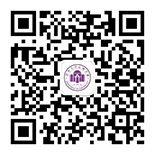1【Mind-Equipment Integration】Laboratory Empowerment Program Introduction
"What is above form is called the Way; what is below form is called equipment." —"Book of Changes"
"Way" refers to universal laws that transcend specific things, and psychological research can be called the Way; "equipment" refers to operable and perceivable technical tools, and laboratory equipment can be called equipment.
The【Mind-Equipment Integration】Laboratory Empowerment Program is organized by the Laboratory of the Department of Psychology and Cognitive Sciences at Tsinghua University. Its purpose is to help faculty and students master experimental equipment, understand psychological mechanisms, and deepen theoretical cognition through technical operations.
2 Transcranial Magnetic Stimulation (TMS) Introduction
Transcranial Magnetic Stimulation (TMS) is a non-invasive neural modulation technique that uses time-varying magnetic fields to painlessly stimulate cortical neurons through the skull, causing changes in local electrophysiological activity, and then affecting distant brain areas through neural network connections. Its principle is based on the law of electromagnetic induction, generating pulsed magnetic fields through rapidly changing currents in coils, thereby inducing currents in brain tissue and regulating the excitability of nerve cells. According to different stimulation frequencies, TMS can be divided into low-frequency (≤1Hz) inhibitory stimulation and high-frequency (≥5Hz) excitatory stimulation, but actual effects are also influenced by factors such as stimulation intensity, duration, and individual differences. Combined with navigation systems, TMS can achieve precise positioning.
TMS is currently widely applied in research and clinical fields, including treatment of neuropsychiatric diseases such as depression, obsessive-compulsive disorder, and Parkinson's disease, as well as basic explorations such as brain functional mapping and cognitive research. Compared to traditional electrical stimulation, TMS has advantages of being non-invasive, safe, and repeatable. With technological development, new paradigms such as deep TMS (dTMS) and theta burst stimulation (TBS) have further expanded its application potential.
3 Training Preview
To help faculty and students with relevant experimental needs learn and use this equipment, the Psychology Department Laboratory organizes this free training. Faculty and students are welcome to register.
Brand and Model: Magstim Rapid2 Pulsed Magnetic Field Stimulator, Visor2 Optical Positioning System
Training Format: Theoretical explanation + hands-on demonstration
Training Time: May 23, 2025, 09:30-11:30
Training Location: Conference Room 915, 9th Floor, Building 5 of Tsinghua University Ziqiang Science and Technology Building (Lv Dalong Building)
Personnel Limit: 25 people
Registration Method: Scan the QR code below to register
Notes:
1. Registration deadline is 13:00 on May 21, 2025.
2. Successful registrants will receive a registration confirmation email notification before 13:00 on May 22, 2025. If you confirm participation, please reply promptly, otherwise registration qualification may be canceled.
3. After successful registration, faculty and students from outside the university should handle campus entry approval according to Tsinghua University's campus entry regulations.
Contact Person: Teacher Yang
Email: yanglanyu@mail.tsinghua.edu.cn
Phone: 62781834

